Latest Content
Featured Image Gallery
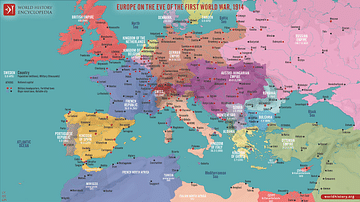
Image Gallery
Europe 1914–1949: History Maps of the World Wars
This map collection explores the geopolitical transformation of Europe between 1914 and 1949. From the First World War (1914-18) and the collapse of...
Featured Image

Image
Roman Abacus
A 1st century CE bronze portable abacus, part of a Roman scribe's kit. From St. Martin-de-Corléans Cemetery, Aosta, North Italy. (Archaeological Museum...
Free for the World, Supported by You
World History Encyclopedia is a non-profit organization. Please support free history education for millions of learners worldwide for only $5 per month by becoming a member. Thank you!
World History Encyclopedia is a non-profit organization. Please support free history education for millions of learners worldwide for only $5 per month by becoming a member. Thank you!
Become a Member Donate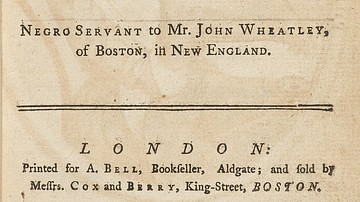
Article
Poems of Phillis Wheatley and Jefferson's Criticism
Although Phillis Wheatley's poetry found an audience upon publication, it was not well received by everyone and some, notably Thomas Jefferson (l. 1743-1826...
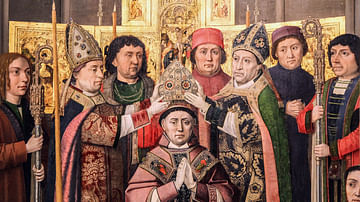
Article
Christian Celibate Martyrs
Martyrologies, a unique genre of Christian literature, appeared from the 2nd century CE. A martyrology tells the story of the suffering and ordeals...

Article
Siege of Sevastopol in 1941-2
The siege of Sevastopol (Oct 41 to Jul 42) was an attack by Axis forces on the base of the USSR's Black Sea Fleet during Operation Barbarossa of the...
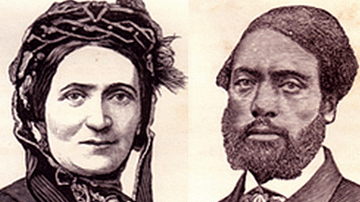
Article
Ellen and William Craft's Running a Thousand Miles for Freedom
Ellen and William Craft's Running a Thousand Miles for Freedom (1860) tells the story of the couple's escape from slavery, with Ellen disguised as a...
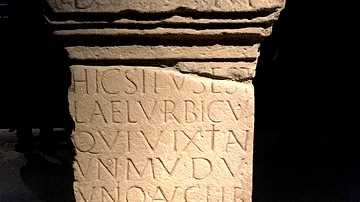
Article
Views of the Afterlife in Roman Tombstone Inscriptions
Ancient views of the afterlife are reflected in literature, tomb inscriptions, and grave goods. Then, as now, a belief in another stage of existence...

Definition
Phillis Wheatley
Phillis Wheatley (l. c. 1753-1784) was the first African American woman to publish a book of poetry and become recognized as a poet, overcoming the...

Definition
Lebensraum
Lebensraum ('living space'), is a geopolitical concept which was adopted by Adolf Hitler (1889-1945), the leader of Nazi Germany, to justify the military...

Definition
Mary Prince
Mary Prince (l. c. 1788 to c. 1833) was the first enslaved Black woman to publish an autobiography/slave narrative. Prince was illiterate but dictated...
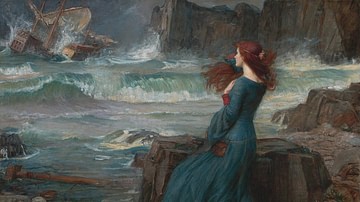
Definition
The Tempest
The Tempest is a play by William Shakespeare (c. 1564-1616), written in 1610 or 1611, and first performed for the court of James I of England (r. 1603-1625...

Article
T. R. Dew's A Review of the Debate in the Virginia Legislature of 1831 and 1832
T. R. Dew's A Review of the Debate in the Virginia Legislature of 1831 and 1832 is a pro-slavery work written in response to calls for emancipation...

Article
Siege of Leningrad
The siege of Leningrad (Saint Petersburg) began during Operation Barbarossa, the invasion of the USSR launched by the leader of Nazi Germany, Adolf...
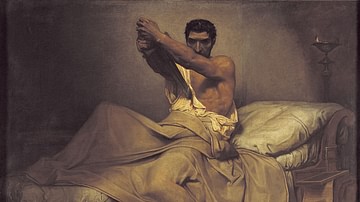
Article
The Ancient Concept of a Noble Death
The act of voluntary death was never condemned in antiquity. In fact, The English word "suicide" comes from the Latin for "self-slaying." The reason...

Definition
Oradour-sur-Glane Massacre
The Oradour-sur-Glane massacre in southwest France was the murder on 10 June 1944 of 643 civilian men, women, and children by the Waffen SS during the...

Article
Ten Great Slave Revolts in Colonial America and the United States
There were 250-311 slave revolts in Colonial America and the United States between c. 1663 and c. 1860 as defined by scholar Herbert Aptheker (l. 1915-2003...
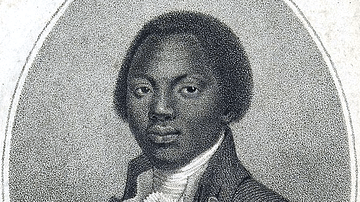
Article
Olaudah Equiano's Account of the Middle Passage
Olaudah Equiano (l. c. 1745-1797, also known as Gustavus Vassa) was an African of the Igbo village of Essaka, of the Kingdom of Benin (modern Nigeria...
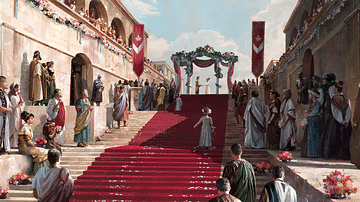
Article
Roman Girls and Marriage in Ancient Rome
In ancient Rome, the legally acceptable age for marriage for girls was twelve. Although in middle-class Roman society, the most common age of first...